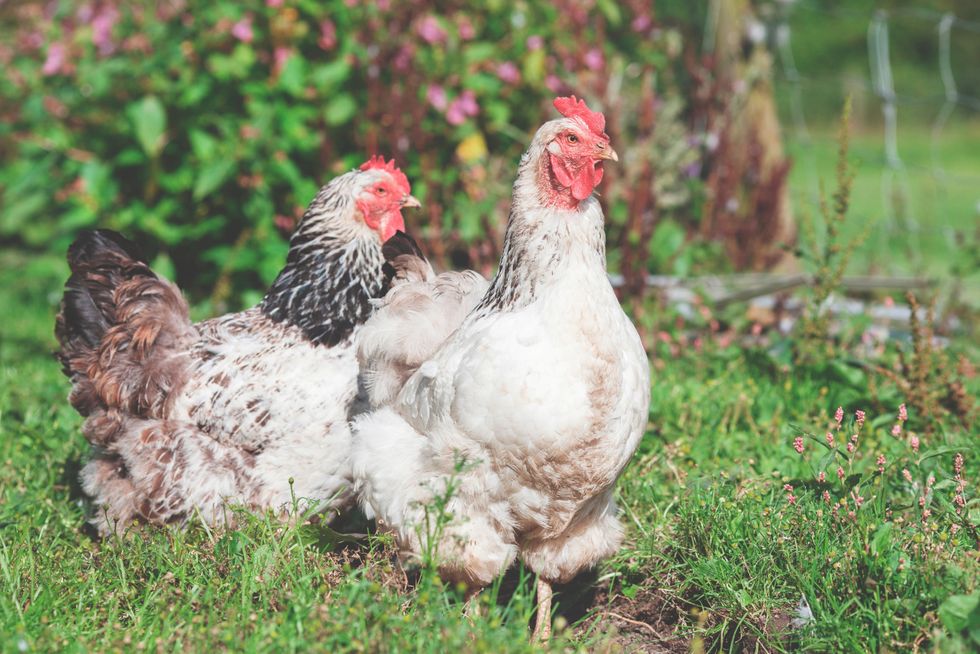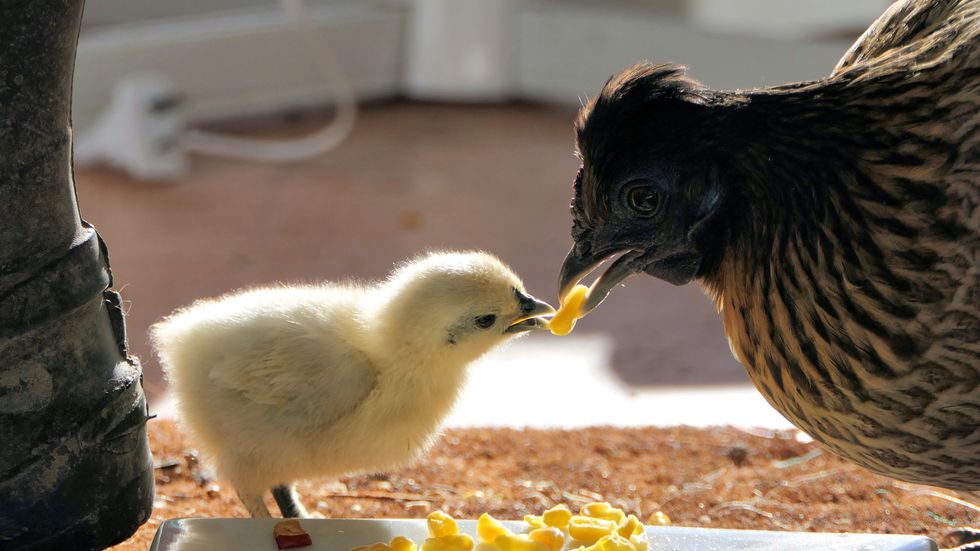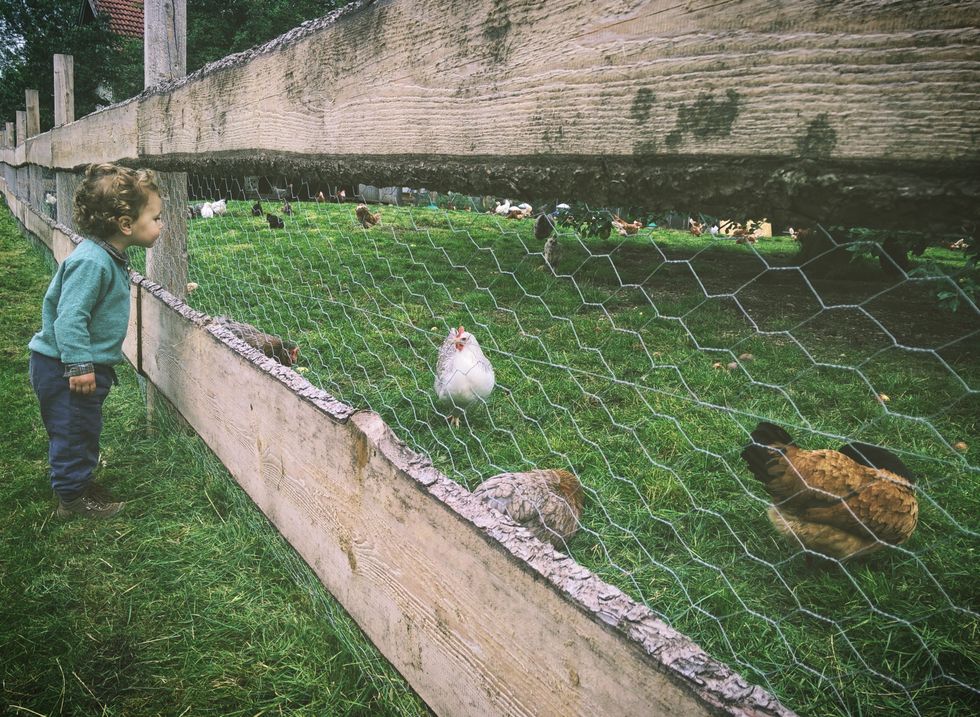There is no better feeling than pecking around a grocery store that's packed with hundred of varieties of different goodies. But sometimes, the endless variety encourages companies to up their marketing game, and usually, it is us, the consumer, who reap the consequences.
I recently celebrated four years eating a vegan diet, and for my veggieversary, I decided to eat eggs for breakfast. Well, the main reason for this decision is because my body began breaking down after four years of a vegan diet. I went to the doctors for my annual blood test, and the results showed alarmingly low blood-protein levels, which explained my weight loss, excess fatigue, and depressed state of mind.
So, that morning of my four-year veggieversary, I drove to the grocery store in search of quality eggs to cook for breakfast. I walked towards the egg section, and when I got there, I was amazed and startled by how many different types of eggs that I can choose from: Grade A or AA, white or brown, a dozen sketchy-looking eggs for $2 or pasture-raised organic locally-produced eggs for $6 a dozen. There were cage-free and free-range options, USDA Organic, and vegetarian eggs in white, green, yellow, or colorful boxes to choose from.
Naturally, I consulted the internet for advice. Here are a few egg marketing lies we can't egg-nore anymore at the grocery store:
"Organic"

Photo by Jenny Hill on Unsplash
Although it is generally good consumer practice to purchase organic foods, there is a grey area in what constitutes as an "organic" chicken. Certified-organic eggs means that the chickens' feed was certified organic, free of toxins like arsenic and antibiotics, pesticides, animal byproducts, and genetically modified organisms. Sounds good and dandy, but forced molting and debeaking are allowed in certified-organic egg farms.
I put in an effort to purchase only certified-organic foods, even though I am aware that there is a probability that the certification is falsified.
During one Thanksgiving dinner, a family-friend who is a commercial interstate truck driver told us a rather alarming story: He was in Florida during one of his cross-country drives, and he, along with a fleet of semis, drove to an apple orchard. The apple company loaded apples into the trucks, and labeled one truck as organic, and then the next as conventional. Even though all the apples were grown conventionally, stories like this are examples of the prevalent "organic-scam" happening in our world today.
Brown Eggs are Healthier Than White Eggs

Photo by Autumn Mott Rodeheaver on Unsplash
This statement is quite a longshot from being true. The color of eggs has to do with the breed of the chickens - not the nutrition content. The brown pigment comes in only if the hen is genetically programmed to do so, and this process works just like the skin color of human babies works.
All colors are created equal.
"Vegetarian Fed"

Photo by Andrea Lightfoot on Unsplash
With a rise in popularity in the vegan and vegetarian diets, egg producers capitalize on this 'vegetarian zeitgeist' by marketing their packages with a peculiar statement: "vegetarian fed chickens".
This is a massive problem, not only for us as a scam, but for the chickens.
If you didn't already know, chickens are not vegetarians. They are meat-eaters. They will readily devour small bugs and animals that are available in their ecosystem.
And when they a vegetarian diet is forced upon them, farmers claim the hens turn on each other. After all, these chickens are like little dinosaur raptors.
Furthermore, without a carnivore diet, chickens fall ill when they lack an essential protein-based amino acid called methionine.
Therefore, this dubious marketing tactic is borderline animal cruelty, purely in place for the sake of profit.
"Cage-Free & Free-Range"

Allow me to paint this picture for you: 16,000 chickens crammed together in a stuffy, nasty warehouse. There are no cages, and, in theory, the chickens are allowed to "roam freely".
Producers can label the eggs created here as both cage-free and free-range.
It is a shameful lie, but it works and tricks consumers. It also confuses consumers like me and causes massive distrust in the industry as a whole.
But there is a path towards finding a more ethical source of eggs, and that path leads to your local farmer.
The Solution? LOCAL PASTURE-RAISED EGGS

If you desire for an ethical source of eggs and are willing to spend an extra buck or two to make sure your eggs come from a source you trust, seek out local egg producers near you.
If you live in the countryside, you might drive by a farm that sells fresh eggs daily for as low as $4 a dozen. And if you live in the city or suburbs, do some research on the egg companies in your grocery store as you shop.
Nowadays, transparency is an aspect many companies are adopting as consumers are becoming more aware of the sources of their foods. Your best bet is purchasing "PASTURE-RAISED" eggs, which are eggs produced by hens that have a considerable amount of land to peck upon as compared with other, less fortunate hens.
I expect more pasture-raised eggs to appear in grocery stores as we, the consumers, become more aware of where our food comes from.
















